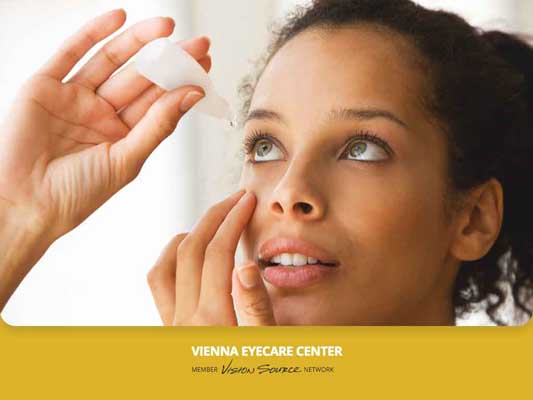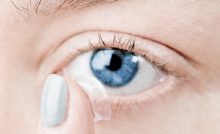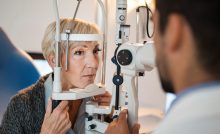Treating Dry Eye Syndrome: What Are the Options?


Staring at a computer in an airconditioned office for more than four hours can take its toll on your eyes. People blink less often when they’re staring at a computer screen; this tendency, combined with the stale air in the building office, results in increased risk for dry eye syndrome.


Left untreated, dry eye syndrome can lead to eye infections or even damage to the cornea. Vienna Eyecare Center, your-go to clinic for eyeglasses and eye exams, lists the symptoms of the condition as well as the corresponding treatment options.
The Symptoms
Dry eye syndrome is usually caused by two things: decreased tear production or increased tear evaporation. The following symptoms usually occur in both eyes:
- Blurry vision
- Red, itchy or watery eyes
- Increased sensitivity to light
- Difficulty putting on contact lenses or driving at night
Keep in mind that this list isn’t exhaustive. If you notice something’s not right with your eyes, it’s best to consult an optician and undergo an eye exam.
Treatment Options
Since dry eye syndrome is most commonly caused by insufficient tear production, your doctor might prescribe cholinergic or tear-stimulating drugs.
It may also be that inflamed eyelids are to blame for the condition; the inflammation might be preventing your oil glands from secreting enough oil into your tears. In this case, your doctor will prescribe anti-inflammatory drugs. To help ease the discomfort, your doctor might also give you some eye drops to control the inflammation in your cornea.
Fortunately, there are exciting developments in the treatment of dry eye syndrome. A clinical trial involving eye drops containing the DNase enzyme has yielded some encouraging results. After using the solution four times per day for eight weeks, participants in the experimental group suffered less corneal damage and less discomfort than those in the control group. However, the eyedrops still need further testing, and it will be a while before the treatment will be available on the market. In the meantime, if you’re experiencing any of the symptoms listed above, consult your local optician to learn more about the treatment options that are already available.
Vienna Eyecare Center offers a wide range of eye care services and products, including eyeglasses and contact lenses. To set up an appointment, call (703) 938-7633 or fill out this form. We serve homeowners in Fairfax, Reston and Tysons Corner, VA.
Recent Posts
What Is the Optometrist’s Role in Glaucoma Co-Management?
Glaucoma is a leading cause of irreversible vision loss worldwide, known insidiously as the "silent…
Who Is the Ideal Candidate for Ortho-K?
For many individuals grappling with the inconvenience of glasses or the discomfort of contact lenses,…
Love Your New Glasses? Here’s How to Make Them Last Longer
Opting for a new pair of glasses not only marks an investment in your vision…
The Link Between Neck Pain and Your Vision
Neck pain is a common ailment that affects many individuals, causing discomfort and restricting daily…
Preparing for Your Eye Exam: Tips for Accurate Results
An eye exam is an essential aspect of maintaining optimal eyesight and overall eye health.…
How Stress and Your Mental Well-Being Can Impact Vision
In the bustling and picturesque city of Vienna, VA, Vienna Eyecare Center stands as a…







